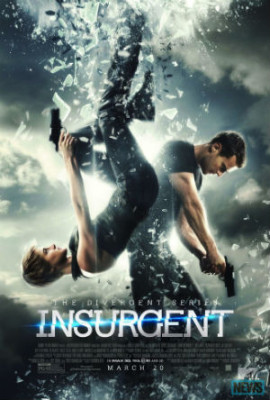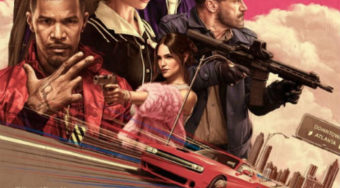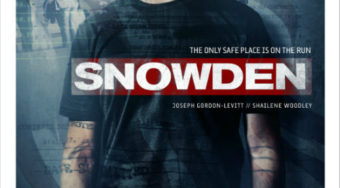Film Reviews

The Divergent Series: Insurgent
Genre: Action and Adventure, Science Fiction
Director: Robert Schwentke
Cast: Shailene Woodley, Theo James, Octavia Spencer, Jai Courtney, Ray Stevenson, Zoë Kravitz, Miles Teller, Ansel Elgort, Maggie Q, Mekhi Phifer
MPAA-Rating: PG-13
Release Date: March 20, 2015
Kenneth Branagh’s Cinderella is an extraordinary film. The director, unhealthy famous for bringing so many Shakespearean plays to the big screen, more about here brings an undeniable charm and elegance to the proceedings— making this familiar story come to life in an unfamiliar way. Lily James (Downton Abbey) stars as the title character but it’s really the gorgeous visual choices and production designs that make this Disney fairy hard to forget.
When the story opens, salve Ella (not yet nicknamed Cinderella) is introduced as a girl who sees the world “not for what it is but for what it could be.” She’s living a beautiful life with two loving parents but when tragedy strikes, her mother leaves her with simple but strong words of advice: “Have courage and be kind.” It’s a message that Ella will need when her father remarries and she’s left living in an attic under the watchful eye of her wicked stepmother (a wonderfully scornful Cate Blanchett) and her obnoxious stepsisters (Sophie McShera and Holliday Grainger).
The story of the mistreated girl and her budding romance with a young prince is well-known and Branagh has maintained much of its structure (this is much more traditional than the 2014 hit Maleficent) while adding a unique but subtle spin on it.
The screenplay by Chris Weitz (About a Boy) is straightforward but features some spot-on lines of dialogue that meticulously define the characters. In describing the stepmother, the narrator (Helena Bonham Carter, who plays the fairy godmother), notes that “She too had known grief but she wore it wonderfully well.”
In establishing the relationship between the Prince (a well-chosen Richard Madden) and his father the King (Derek Jacobi), Weitz establishes their father-son bond in subtle but meaningful ways. “Punctuality is the politeness of princes,” the King advises to his son as the mentor he truly he. But later on, in a lighter moment, the King jokes to his son that Cinderella is “the forgetful one who loses her shoe.” There are only a few scenes between the duo but lines like these lay the foundation for their bond.
What Branagh shows here is that one can take a well-known fairy tale and maintain its structure while making something so utterly charming and delightful that it’s hard to resist its appeal. The actors and the script work here but the real stars here might be the production designers and the costume designers who create an intricately beautiful world for this tale. The scenes soar stylistically as if they are straight out of a fairy tale book and viewers will be entranced in scene after scene (the scene where mice come to life and a pumpkin becomes transformed truly stands out as a remarkable visual achievement) where the director’s stunning vision becomes reality.
Disney has not forgotten how to make unforgettable fairy tales unravel on the big screen and Cinderella proves that. The visuals capture the magic and the spirit of the story without overwhelming it.
Branagh may have seemed an odd choice to helm this project. Amongst other things, he is well known for bringing Shakespearean plays to the film screen. From Henry V (which earned him Oscar nods for best actor and for best director) to Hamlet to Much ado about Nothing,there’s a great prestige present in much of his filmography (the same can be said for Thor, Branagh’s venture into the Marvel universe).
During a recent interview, the director addressed the differences between bringing well-known Shakespearean plays to the big screen and bringing a well-known fairy tale to it and he noted that there’s not that much of a difference as one would think. He proves that in Cinderella, a movie that shows that his distinguished but straightforward vision was exactly what was needed to make this adaptation thrive.
The new film Insurgent contains all of the typical ingredients of a dystopian film focused on young adults. There’s the likeable but tough-as-nails hero, malady
the loyal love interest, rx
the sometimes- traitorous ally and a villain— oftentimes the leader of an overpowering government—with little personality. It’s that simple.
The film offers those prototypical characters and a simplistic plot that simply exists to get them from one place to another. Despite those flaws though, the film’s impressive special effects and its exciting third act make this sequel stand out a little bit more than its immediately-forgettable predecessor Divergent.
Divergent (2014) introduced viewers to a Breakfast Club-like futuristic society. Instead of jocks and geeks sitting around a library, there were one-dimensional groups like Candor and Dauntless—which were defined by honesty and bravery, respectively— living together in this new world. Of course, like in the Breakfast Club, the person in charge of this world didn’t like the fact that people could belong to more than one social group.
That meant that Tris (Shailene Woodley), a divergent who fit into multiple social groups, was being hunted by the end of the original film. In this sequel, Tris is still hiding from the dictatorial Jeanine (Kate Winslet), who spends this sequel searching for divergents so she can open a mysterious box that she believes would help keep her in power.
Tris, alongside boyfriend Four (Theo James), rushes from location to location as they contemplate overthrowing Jeanine’s monstrous regime. Along the way, Tris spends time with the peaceful Amity community, the rebellious Factionless crew and the honest Candor group. Unfortunately, there’s little depth found in any of these communities.
Because these factions are defined by one characteristic or another, the characters in them are extremely bland and forgettable.
That leaves the film’s four main protagonists carrying the story. Alongside Tris and Four, there’s Tris’ intellectual brother Caleb (Ansel Elgort) and the sometimes-traitorous ally Peter (Miles Teller). All four actors have done strong work elsewhere— oftentimes with one another (Woodley appeared as Elgort’s love interest in The Fault in our Stars and Teller’s love interest in The Spectacular Now). Here though, there isn’t enough for them to do to create strong or deep characters.
Whereas in The Hunger Games Katniss’ personality grew throughout her ordeal. Here, Tris doesn’t seem to do much growing. She is just leaping from one environment to another as she searches for the truth. Woodley is a fine actress but she’s left with little material to build something out of here— until the end.
In its final twenty minutes, the main conflict between Jeanine and Tris takes center stage as the two face off against one another. It’s here that director Robert Schwentke offers up some great and audacious special effects, to complement this dystopian world. These final sequences are compelling and hint at what this young adult adaptation could’ve offered. When the final twists unfold, we can see what this plot was leading up to— and it’s an interesting surprise, to be sure— but the intriguing conclusion alone isn’t enough to justify the forgettable ninety minutes that preceded it.
Cinematic adaptations of young adult novels focusing on a dystopian future are nothing new but there are thoughtful films that truly stand out in the crowd (like The Hunger Games series and The Giver) and then there are movies like Insurgent.
Review by: John Hanlon












